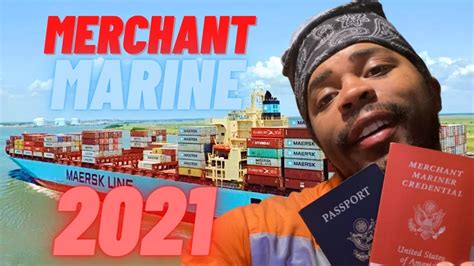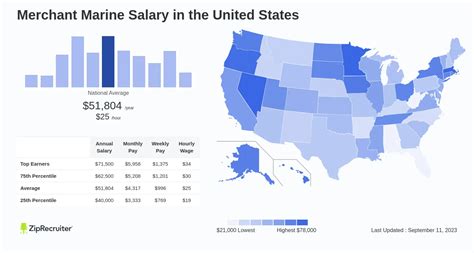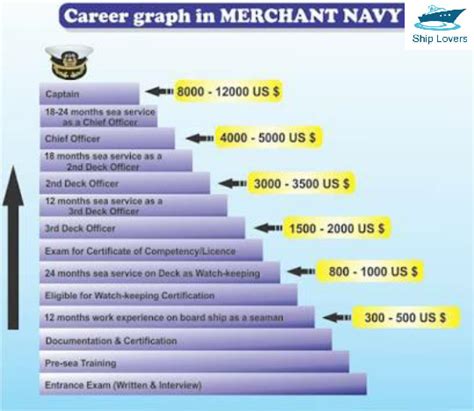A career in the U.S. Merchant Marine offers a unique blend of adventure, responsibility, and significant earning potential. For those drawn to the open water and the vital work of powering global commerce, the financial rewards can be substantial. But what does a merchant marine salary actually look like? While entry-level positions offer a solid starting wage, experienced officers and specialized mariners can command salaries well into the six figures, often ranging from $60,000 to over $180,000 annually, depending on a host of factors.
This guide will break down the complexities of mariner compensation, providing a data-driven look at what you can expect to earn and how to maximize your income in this dynamic and essential industry.
What Does a Merchant Marine Do?

First, it's important to understand that the "Merchant Marine" is not a single job but a vast profession encompassing all civilian mariners who operate U.S.-registered commercial and government-owned vessels. These professionals are not members of the armed forces, though they can serve as an auxiliary to the U.S. Navy in times of war.
Their primary role is to transport cargo—from oil and grain to consumer goods—and passengers across the globe. A ship's crew is typically divided into two main departments:
- Deck Department: Responsible for navigation, vessel maneuvering, and cargo operations. Roles include Captain (Master), Chief Mate, Second and Third Mates, and Able and Ordinary Seamen.
- Engine Department: Responsible for the propulsion and mechanical systems of the ship. Roles include Chief Engineer, First, Second, and Third Assistant Engineers, and skilled ratings like Oilers and Electricians.
Average Merchant Marine Salary

Pinpointing a single "average" salary for a merchant marine is challenging due to the wide variety of roles. However, we can analyze data from authoritative sources to build a clear picture.
According to the U.S. Bureau of Labor Statistics (BLS), the median annual wage for "Water Transportation Workers" was $66,690 in May 2023. This figure includes a broad mix of both unlicensed sailors and licensed officers.
However, when we look at more specialized, licensed roles, the numbers increase significantly:
- The median annual wage for Ship Engineers was $84,950 in May 2023 (BLS).
- The median annual wage for Captains, Mates, and Pilots of Water Vessels was $88,600 in May 2023 (BLS).
Reputable salary aggregators often show a higher average, reflecting the strong earnings of experienced, licensed officers. For example, Payscale.com reports an average base salary for a "Merchant Marine" of around $85,000 per year, with a typical range falling between $50,000 and $184,000. Salary.com data shows that a licensed Chief Mate can expect a median salary of over $135,000, while a Ship's Captain (Master) can earn a median of $150,000 or more.
Typically, an entry-level mariner with basic credentials might start in the $50,000-$70,000 range, while a seasoned Chief Engineer or Captain on a large vessel can easily earn upwards of $200,000 per year.
Key Factors That Influence Salary

Your specific salary as a mariner will be determined by a combination of critical factors. Understanding these variables is key to charting a successful and lucrative career path.
###
Level of Education
Your educational pathway is arguably the single most important factor in your starting salary and long-term earning potential. There are two primary tracks:
1. Maritime Academies: Graduating from a four-year federal or state maritime academy (such as the U.S. Merchant Marine Academy at Kings Point, Massachusetts Maritime, or Cal Maritime) is the most direct route to a high-paying officer position. Graduates earn a Bachelor of Science degree, a U.S. Coast Guard license as a Third Mate or Third Assistant Engineer, and an officer's commission in the U.S. Navy Reserve. This immediately qualifies them for officer-level salaries that are significantly higher than entry-level unlicensed roles.
2. Hawsepiping: This is the traditional method of working your way up from an unlicensed, entry-level position (like an Ordinary Seaman) by accumulating sea time and passing U.S. Coast Guard examinations to earn officer licenses. While it doesn't require a four-year degree, this path takes much longer to reach the high-income levels of a licensed officer.
###
Years of Experience
Experience is paramount at sea. The maritime industry has a clearly defined career ladder, and each promotion comes with a substantial pay increase. For a deck officer, the progression is from Third Mate to Second Mate, then to Chief Mate, and ultimately to Captain. In the engine room, a Third Assistant Engineer progresses to Second, then First, and finally to Chief Engineer. A mariner with 10-15 years of experience in a senior officer role will earn exponentially more than a recent academy graduate.
###
Geographic Location
While mariners work globally, their salary is often tied to the "flag" of the vessel and the location of the employing company. U.S.-flagged vessels, particularly those operating under the Jones Act (which mandates that cargo transport between U.S. ports be on U.S.-built, owned, and crewed ships), typically pay American mariners the highest wages. Major port cities like Houston, New Orleans, Seattle, Norfolk, and New York/New Jersey are the primary hubs for maritime employment in the United States.
###
Company Type
The type of company you work for and the vessel you serve on have a major impact.
- Government vs. Private: Working as a civilian mariner for the government's Military Sealift Command (MSC) offers competitive federal salaries, excellent benefits, and job security.
- Private Sector: In the private sector, salaries vary by vessel type. Tanker vessels (carrying oil, chemicals, or Liquefied Natural Gas - LNG) often pay the highest salaries due to the hazardous nature of the cargo and the specialized credentials required. Container ships, bulk carriers, and research vessels also offer strong compensation packages.
###
Area of Specialization
Specialized skills and endorsements on your U.S. Coast Guard license are a direct path to higher pay. For instance:
- Engineers vs. Deck Officers: As cited by the BLS, ship engineers often have a higher median salary than the general category that includes deck officers, reflecting the high demand for technical expertise.
- Tankerman PIC (Person-in-Charge): An endorsement to handle dangerous liquids or liquefied gases is highly lucrative.
- Dynamic Positioning Officer (DPO): DPOs, who use advanced systems to maintain a vessel's position for offshore oil and gas operations, are in extremely high demand and command premium pay.
Job Outlook

According to the U.S. Bureau of Labor Statistics (BLS), overall employment for water transportation workers is projected to grow 1 percent from 2022 to 2032, which is slower than the average for all occupations.
However, this figure should be viewed with context. While increasing automation may temper the need for new positions, the industry will still have a consistent demand for qualified mariners. The BLS notes that about 7,900 openings for water transportation workers are projected each year, on average, over the decade. Most of these openings are expected to result from the need to replace workers who retire or transfer to different occupations. This creates significant opportunities for new, well-trained, and licensed mariners entering the field.
Conclusion

A career as a merchant marine is not for everyone; it requires resilience, technical skill, and long periods away from home. However, for those who answer the call, it offers a level of compensation and adventure that few other professions can match.
The key takeaways for maximizing your earning potential are clear:
- Pursue a license: The path to becoming a licensed officer through a maritime academy is the fastest way to a six-figure salary.
- Gain experience: Dedication and sea time lead directly to promotions and higher pay.
- Specialize your skills: Earning endorsements for high-demand work, such as handling hazardous cargo or dynamic positioning, will make you a more valuable and higher-paid mariner.
By strategically planning your education, training, and career progression, you can navigate your way to a prosperous and rewarding career on the world's waterways.
